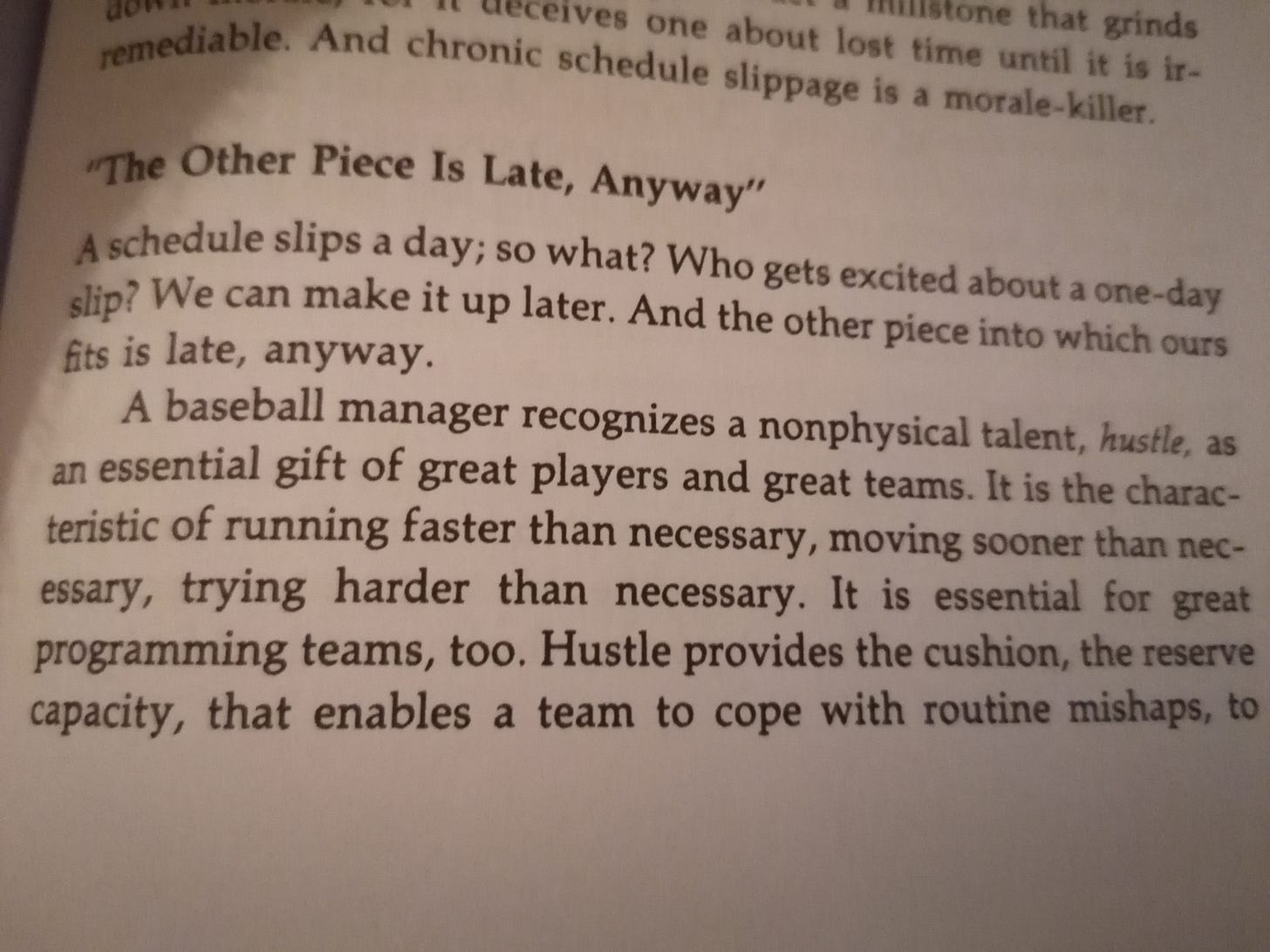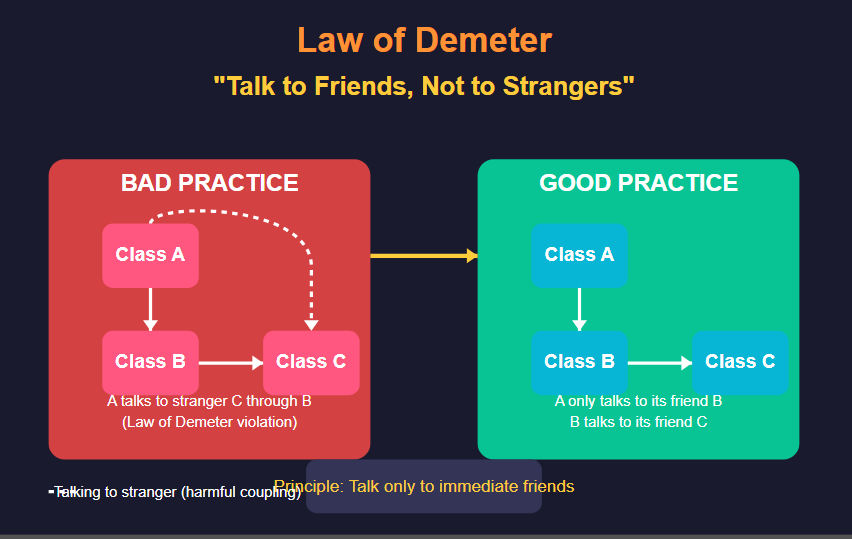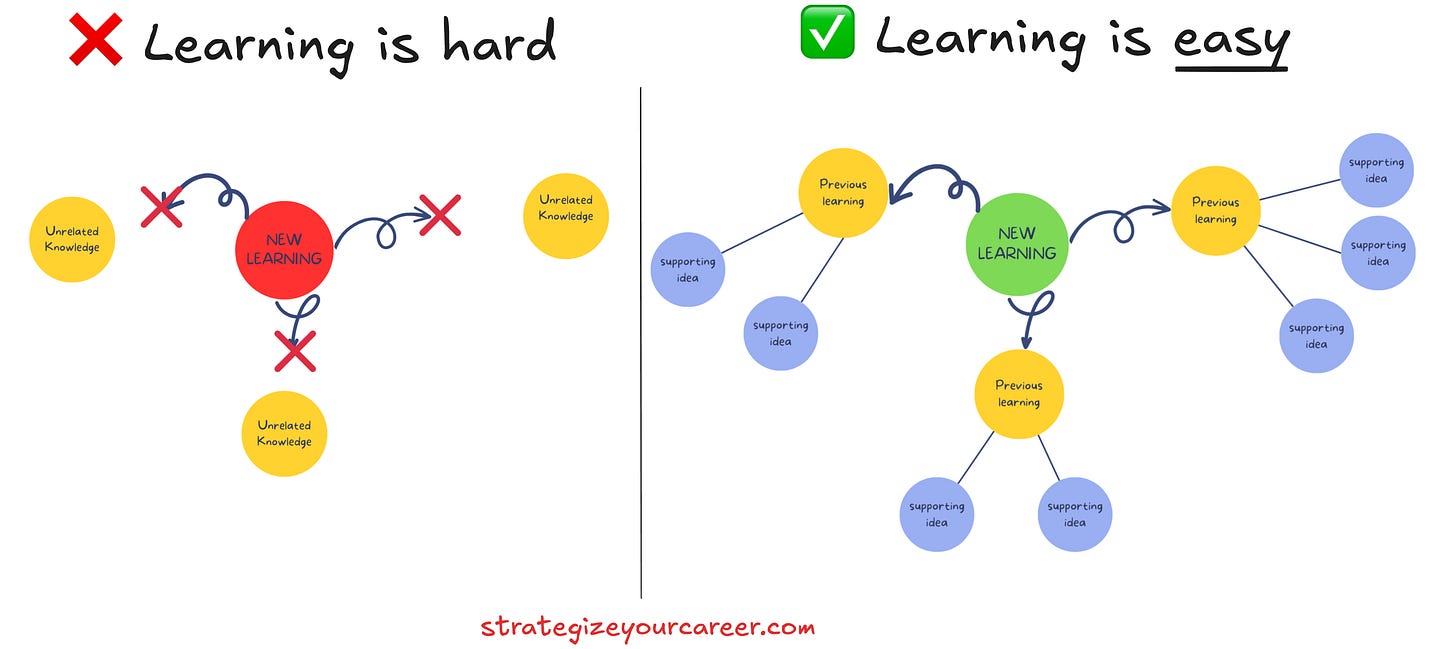How entrepreneurs think differently from 9-5ers?
Learn how entrepreneur's mindset is different from an average corporate manager/worker, why ownership and urgency matter and why you should mostly shut up to be a good active listener.
Operating within an organization is quite different than operating as an entrepreneur. The main reason is that within an organization, you are always working towards an already set goal (unless you are the top-most leader that makes up all the goals). Entrepreneurs operate quite differently and the article below will tell you how.
Additionally, Dan Na shares why ownership and urgency are the two most important characteristics to look for in workers.
So have a healthy experimentation/fail-fast mindset like an entrepreneur, take strong ownership of your area and drive with a sense of urgency to be a rock-star performer 🚀. Read on!
What makes entrepreneurs entrepreneurial? (4 min)
Murat Demirbas
This article aims to get to the essence of entrepreneurs by contrasting them with the mindset that regular corporate managers and leaders have. Entrepreneurs use effectual reasoning as opposed to casual reasoning taught and applied almost everywhere. Entrepreneurs try, fail, learn and do not get stuck on an idea or a business model. They do not obsess about their ideas, they adapt to what they learn about the world through trial and error.
The article includes a very short monologue by Steve Jobs that talks exactly about this one small difference that entrepreneurs have - the ability to “poke the world” around them.
Audience: All tech professionals
Value: Learn how entrepreneurs think
ToT Rating: ⭐⭐🌟
High Ownership, High Urgency (10 min)
Dan Na
This article talks about two very important characteristics that are shared by the most effective workers - ownership and urgency. Engineers with a strong sense of ownership are self-guided and self-driven. They feel they own the thing. When you own the thing, you do not accept annoying bugs, spaghetti code or convoluted architecture. No one has to tell you to deal with tech debt or respond to that urgent support request from a customer. You do it because it is your backyard. You don’t allow crap 💩 in your backyard. Contrast that with the engineers with no sense of ownership. They need constant guidance, they need to be told what to do, and they need to be told what is important.
Reading about urgency reminds me of a paragraph from the famous book The Mythical Man-Month that talks about a non-physical talent called hustle.
Fred Brooks wrote the paragraph 60 years ago 🤯 recognizing the value of people with a strong sense of urgency. 60 years later, this article again emphasizes it. That’s an evergreen right there.
Audience: Software Engineers / Engineering Managers
Value: Learn the most important characteristics of an effective worker
ToT Rating: ⭐⭐🌟
Leveling Up Hacks - Active Listening (6 min)
Path to Staff Engineer
If you want to support your peers or reports better, you need to be good at listening to them👂. You need to be silent and let others speak 😶. You talk only to summarise or ask clarifying questions. You assess how good you are listening through self-reflection and feedback.
Audience: Anyone really
Value: Learn how to be a better listener
ToT Rating: ⭐⭐
5 lessons learned setting up a global engineering org at Google (8 min)
Engineering Leadership
In this article Chaitali Narla shares her experience building a global team of 30+ people spread out in the US and Bangalore, India. She shares some great advice on how to build culture in your teams through repetition. I also love the Leader-Leader model and “I intend to…” approach that aims to empower your team through boosting the ownership and accountability.
Audience: Engineering Managers
Value: Learn how to build great (remote) team culture
ToT Rating: ⭐⭐
Law of Demeter - Talk to Friends, Not to Strangers (6 min)
Javarevisited Newsletter
Have you heard about the famous programming design guideline called the Law of Demeter? If not, this article is a great source for familiarizing yourself with this guideline, which aims to reduce the coupling of your code.
Audience: Software Engineers
Value: Learn how to write less coupled code 🍝📉
ToT Rating: ⭐
How Amazon S3 Stores 350 Trillion Objects with 11 Nines of Durability (13 min)
ByteByteGo Newsletter
Amazon S3 is among the top three most successful products from AWS. There is a lot under the hood of this technological marvel, like index partitioning with lexicographic distribution, caching of frequently accessed objects and automatic rebalancing based on access patterns. Learn how this system, composed of 350+ microservices, stores data with 11 nines of durability (99.999999999%) 🤯.
Audience: Software Engineers
Value: Learn about Amazon S3
ToT Rating: ⭐
My strategy to learn faster than anyone else: Copying from the best (3 min)
Strategize Your Career
We engineers think very highly about our craft and often overemphasize the ratio of creativity in it (t-shirts that say “people think it’s magic, we call it engineering 😎”). Truth be told, there is tons of copying going on in our craft. You copy others’ code, presentation decks, design documents, even PR comments 🙂. With all that copying going on, this article will help you do it properly.
Audience: Software Engineers
Value: Learn how to copy from others properly
ToT Rating: ⭐
Amazon Principal Engineer On Layoffs, Interviewing & Career Growth | Steve Huynh (6 min read, 1h 18 min podcast)
The Developing Dev
In this podcast/article you will hear Steve Huynh‘s experiences from his almost 20 years working at Amazon. Steve talks about interview prep, Amazon’s performance-based layoff culture and many other insights. When seeing the podcast, I remembered Steve also defined a very insightful concept called the “promotion donut” 🍩.
Audience: Software Engineers
Value: Learn about Amazon
ToT Rating: ⭐
You made it to the end! 🙌
See you in the next digest!






Thanks for the mention! Great collection of quotes and articles here.
Thanks for the shout-out! Loved this post as well. Leaders can apply many of these traits in a larger organization also for greater success!